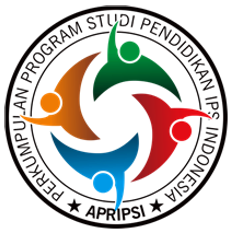PENINGKATAN LITERASI SAINS MELALUI MODEL PROBLEM BASED LEARNING DI SMA INTEGRAL AR-ROHMAH MALANG
Abstract
Scientific literacy skills are needed in facing the 21st century. However, the scientific literacy level of students in Indonesia is still below the international average score. This is also in line with the conditions that occur in class XI students of SMA Integral Ar-Rohmah, students are not used to solving contextual problems and students' scientific literacy is also still low. One learning model that can facilitate students' scientific literacy skills is Problem Based Learning. This research is a classroom action research, with a cycle model research design consisting of planning, action implementation, evaluation and reflection. The results showed that students experienced an increase in scientific literacy between pre-cycle and cycle one. This can also be proven from the posttest average score which is higher than the pretest, with an average posttest score of 75.17 and an average pretest score of 49.65. There were 22 or 75.86% of students who had a scientific literacy score of more than 70 after being treated with problem-based learning models. Thus, the indicators of the success of this research have been achieved, because more than 70% of students achieved a minimum completeness score after learning using the problem based learning model.
Abstrak
Kemampuan literasi sains sangat diperlukan dalam menghadapi abad 21. Namun, tingkat literasi sains peserta didik di Indonesia masih di bawah rata-rata skor internasional. Hal ini juga sejalan dengan kondisi yang terjadi pada peserta didik kelas XI SMA Integral Ar-Rohmah dimana peserta didik belum terbiasa memecahkan permasalahan kontekstual dan literasi sains peserta didik juga masih rendah. Salah satu model pembelajaran yang dapat memfasilitasi kemampuan literasi sains siswa adalah Problem Based Learning. Penelitian ini merupakan penelitian tindakan kelas, dengan desain penelitian model siklus yang terdiri dari perencanaan, pelaksanaan tindakan, evaluasi dan refleksi. Hasil penelitian menunjukkan bahwa peserta didik mengalami peningkatan literasi sains antara pra-siklus dan siklus satu. Hal ini juga dapat dibuktikan dari skor rata-rata posttest yang lebih tinggi daripada pretest, dengan rata-rata skor posttest sebesar 75,17 dan rata-rata skor pretest sebesar 49,65. Terdapat 22 atau 75,86% peserta didik memiliki skor literasi sains lebih dari 70 setelah diberikan perlakuan model pembelajaran problem based learning. Dengan demikian, indikator keberhasilan penelitian ini telah tercapai, karena lebih dari 70% peserta didik mencapai nilai ketuntasan minimal setelah belajar dengan menggunakan model problem based learning.
Downloads
References
Alatas, F., & Fauziah, L. (2020). Model problem based learning untuk meningkatkan kemampuan literasi sains pada konsep pemanasan global. JIPVA (Jurnal Pendidikan IPA Veteran), 4(2), 102–113.
Amaringga, N. G., Amin, M., & Irawati, M. H. (2021). The effect of problem-based learning module containing research result to improve students’ scientific literacy. AIP Conference Proceedings, 2330(1), 030052.
Ardiyanti, Y., Suyanto, S., & Suryadarma, I. G. P. (2019). The role of students science literacy in Indonesia. Journal of Physics: Conference Series, 1321(3), 032085.
Balım, A. G. (2009). The Effects of Discovery Learning on Students’ Success and Inquiry Learning Skills. Eurasian Journal of Educational Research (EJER), 35.
Brown, K. E., & Saeed, T. (2015). Radicalization and counter-radicalization at British universities: Muslim encounters and alternatives. Ethnic and Racial Studies, 38(11), 1952–1968. https://doi.org/10.1080/01419870.2014.911343
Gormally, C., Brickman, P., Hallar, B., & Armstrong, N. (2009). Effects of inquiry-based learning on students’ science literacy skills and confidence. International journal for the scholarship of teaching and learning, 3(2), n2.
Hidayat, R., Roza, Y., & Murni, A. (2019). Peran penerapan model problem based learning (pbl) terhadap kemampuan literasi matematis dan kemandirian belajar. Juring (Journal for Research in Mathematics Learning), 1(3), 213–218.
Indah, N., Mania, S., & Nursalam, N. (2016). Peningkatan kemampuan literasi matematika siswa melalui penerapan model pembelajaran problem based learning di kelas VII SMP Negeri 5 Pallangga Kabupaten Gowa. MaPan: Jurnal Matematika dan Pembelajaran, 4(2), 200–210.
Khoiriyah, A. J., & Husamah, H. (2018). Problem-based learning: Creative thinking skills, problem-solving skills, and learning outcome of seventh grade students. JPBI (Jurnal Pendidikan Biologi Indonesia), 4(2), 151–160.
Liu, X. (2009). Beyond science literacy: Science and the public. International Journal of Environmental and Science Education, 4(3), 301–311.
Mas’ud, A., Jazil, S., Subty, T., & Fahmi, M. (2019). Program Penalaran Islam Indonesia dan Gerakan Kontra-Radikalisme. Jurnal Pendidikan Agama Islam (Journal of Islamic Education Studies), 6(2), 175–202. https://doi.org/10.15642/jpai.2018.6.2.175-202
Nbina, J. B. (2013). The relative effectiveness of guided discovery and demonstration teaching methods on achievement of chemistry students of different levels of scientific literacy. Journal of Research in Education and Society, 4(1), 43–58.
Paristiowati, M., Cahyana, U., & Bulan, B. I. S. (2019). Implementation of Problem-based Learning–Flipped Classroom Model in Chemistry and Its Effect on Scientific Literacy. Universal Journal of Educational Research, 7(9).
Rahayu, S. (2017). Promoting the 21st century scientific literacy skills through innovative chemistry instruction. AIP Conference Proceedings, 1911(1), 020025.
Ridho, S., Aminah, N. S., & Supriyanto, A. (2018). The profile of scientific literacy skill student at SMA Batik 2 Surakarta. Jurnal Penelitian & Pengembangan Pendidikan Fisika, 4(2), 47–54.
Rohmah, N. (2020). Implementasi Pembelajaran Jarak Jauh pada Masa Pandemi Covid-19. Awwaliyah: Jurnal Pendidikan Guru Madrasah Ibtidaiyah, 3(2), 89–95.
Rokhmad, A. (2012). Radikalisme Islam dan Upaya Deradikalisasi Paham Radikal. Walisongo: Jurnal Penelitian Sosial Keagamaan, 20(1), 79–114. https://doi.org/10.21580/ws.20.1.185
Rubini, B., Ardianto, D., Setyaningsih, S., & Sariningrum, A. (2019). Using socio-scientific issues in problem based learning to enhance science literacy. Journal of Physics: Conference Series, 1233(1), 012073.
Siagan, M. V., Saragih, S., & Sinaga, B. (2019). Development of Learning Materials Oriented on Problem-Based Learning Model to Improve Students’ Mathematical Problem Solving Ability and Metacognition Ability. International electronic journal of mathematics education, 14(2), 331–340.
Suwono, H., Pratiwi, H. E., Susanto, H., & Susilo, H. (2017). Enhancement of students’ biological literacy and critical thinking of biology through socio-biological case-based learning. Jurnal Pendidikan IPA Indonesia, 6(2), 213–220.
Tan, C. P., Van der Molen, H. T., & Schmidt, H. G. (2015). To what does the problem based learning contribute to students’ professional identity development. Singapore: Elsevier LT.












